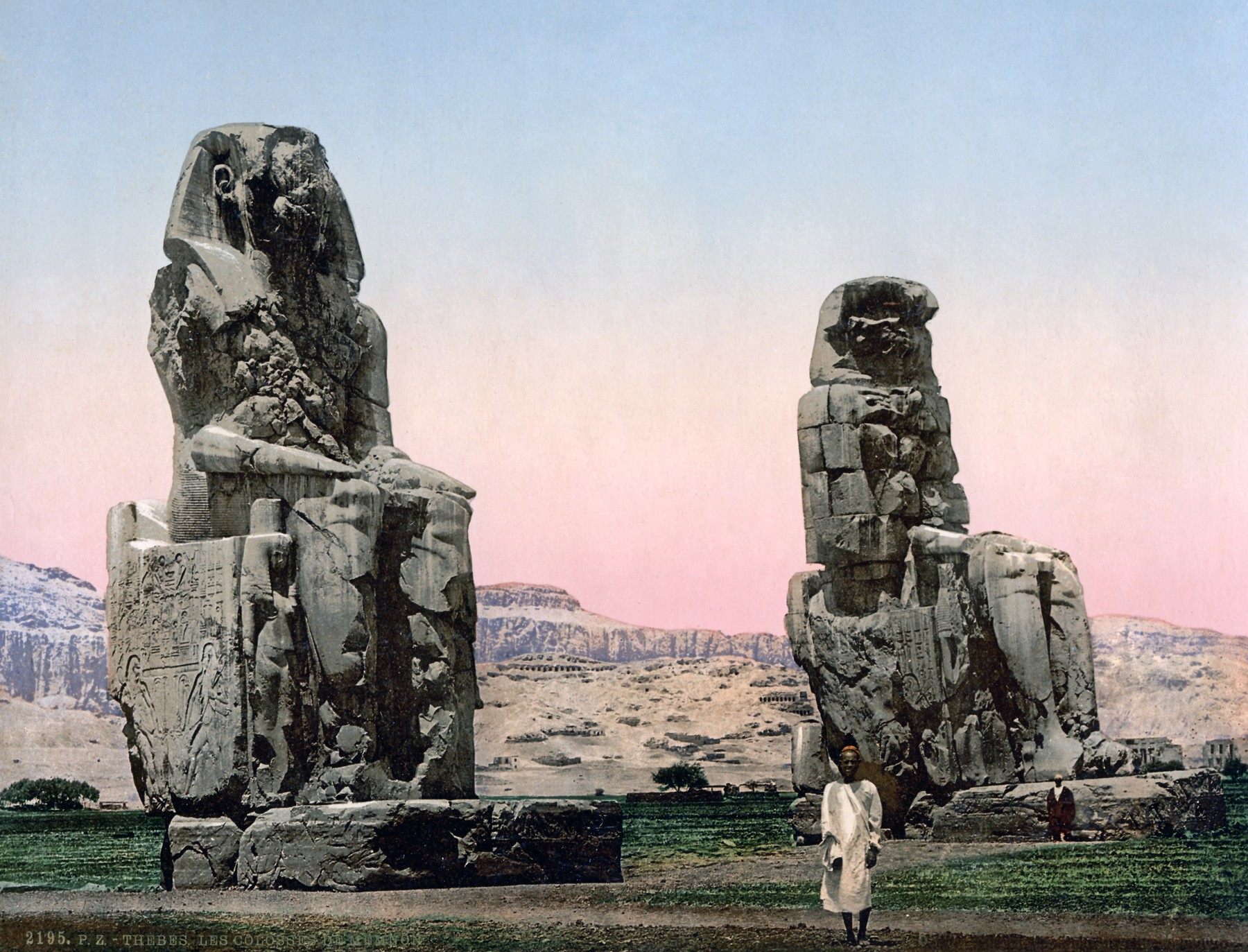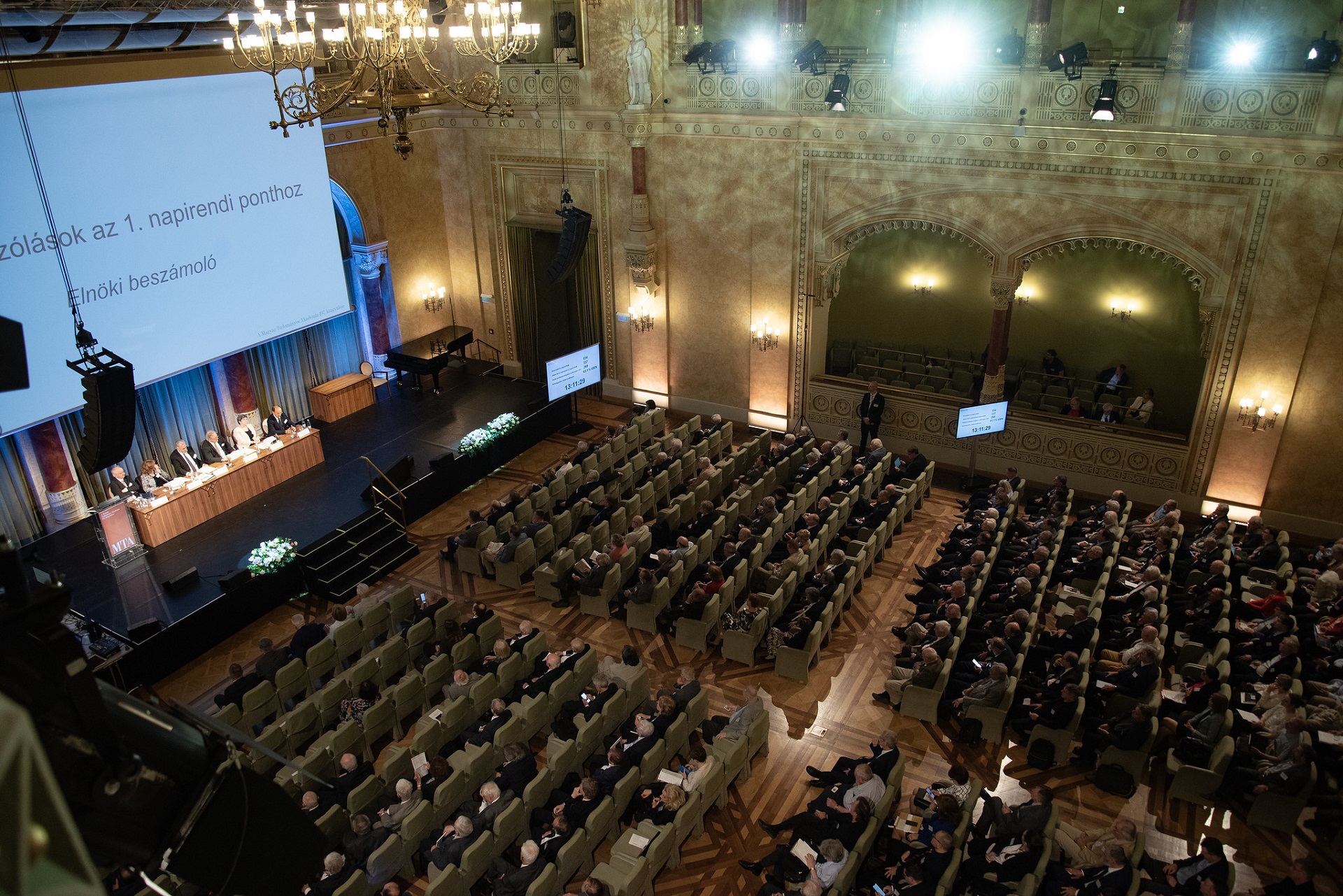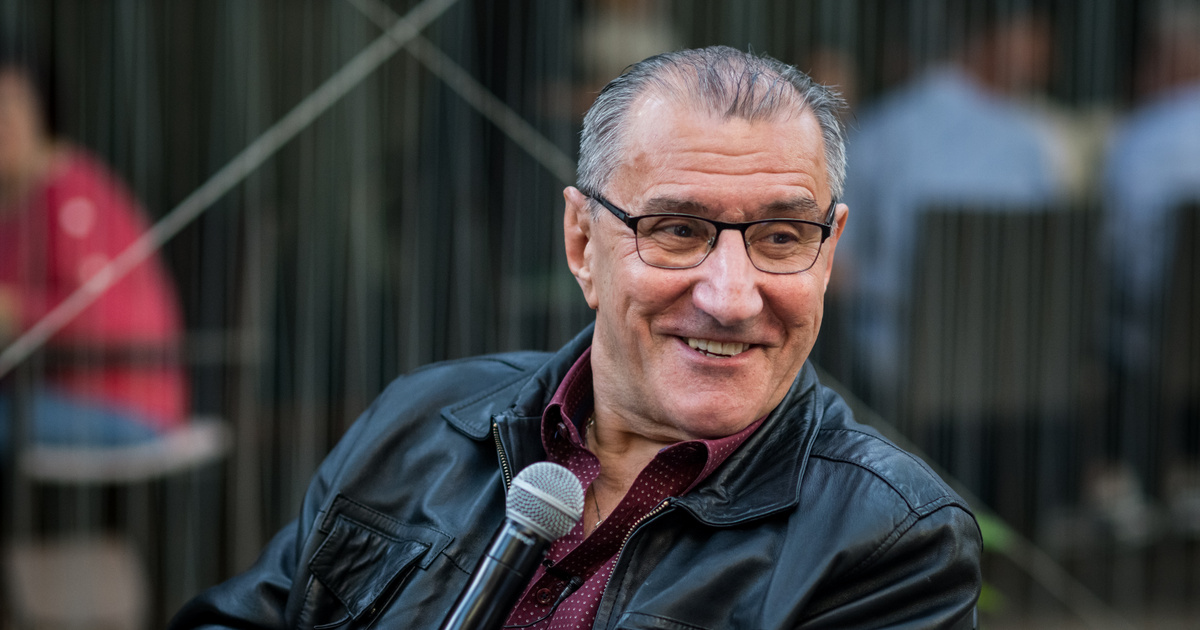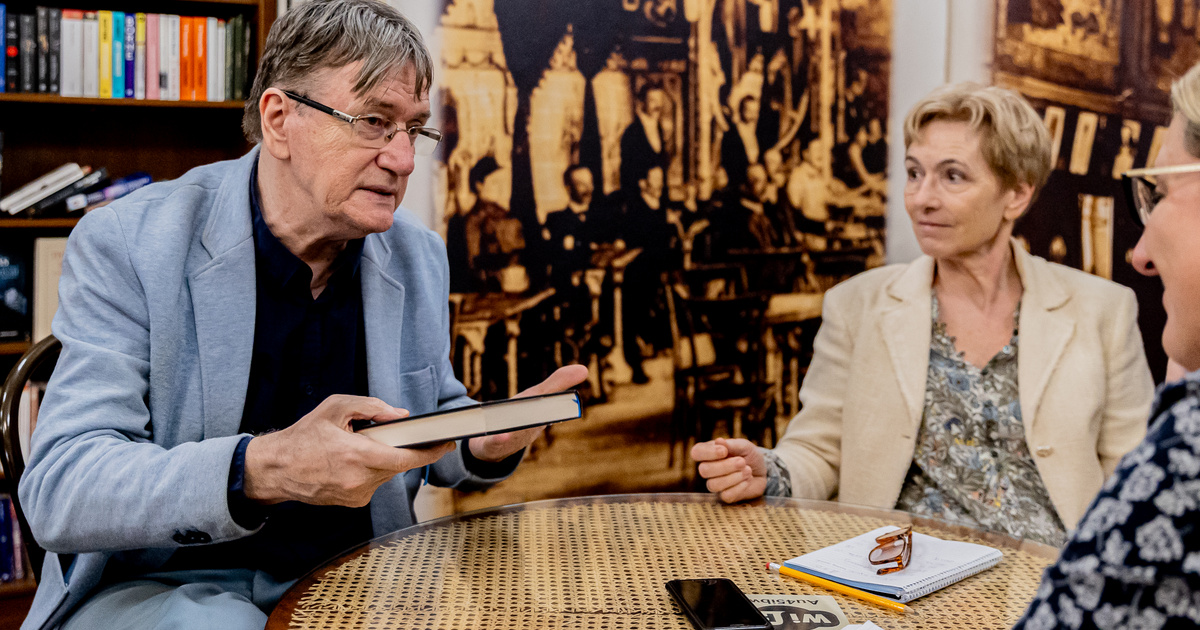The first thing that stands out when flipping through the pages of the relatively thick first part of the seven-volume major work is this Other nameThere is no period at the end of any sentence. “There are some question marks in it, he writes the dialogues in a new paragraph, but he only makes the point at the end of the seventh volume,” laughs Eva A. Dubus, who also translated this work by John Fosse.
According to Sándor Mészáros, every good book has its own mystery, and if you realize this, reading it is not difficult at all.
Fosse’s novels seem to have some strange magic. His lean, simple style of storytelling draws you in, fills every brain cell, and never lets you rest. It reveals depths and burrows into the reader’s memory moments that he cannot and perhaps does not want to get rid of. He thinks in terms of musical structure, his lyrics are fluid, and he uses a lot of repetitive improv that builds tension.
says the director of Calligram Publishing, which sponsors Foss’s books. According to him, the recent Nobel Prize-winning author is anti-Ibsen – he wants to do everything differently. “In Ibsen’s works there is a hierarchy, theatricality and didacticism, we are decoding the action – with Foss there is no decoding.” By the way, Ibsen did not receive the Nobel Prize, and this was also a great pain in his heart.
Volume VII PointillologyMany things can be discovered from the writer’s previous works, and this summary work must have been of great importance when he was awarded the Nobel Prize. Eva has not translated the other volumes yet, because she has not yet decided with the publisher whether to continue or not, and now she has other things to do. “When you translate Fosse, you are in Fosse’s celibacy. You cannot deal with anything else, because it is language and literature that drain your strength, and that is the only thing you have to pay attention to.”
Palóc or Csangó dialect
We have already read about John Foss’s world of writing that it is minimalist, poetic, distilled literature, containing only the essence, the silence, and what lies beyond: the roar of the wind, the waves of the sea, the flow of water. Straits. Moreover, all this is in the Nynorsk (West Norwegian) dialect, which corresponds to a kind of regional language, but the more lyrical and lyrical Nynorsk is exactly equivalent to Bokmal, another Norwegian dialect similar to Danish. They are both taught at school because they do not want Nynorsk to die.
“You have to imagine it like a Palóc or Csangó dialect, but it is not possible to reproduce it in Hungarian. You cannot, for example, write popular expressions in the text, because they will lead you completely astray. I had to leave that,” says Eva. Sándor Mészáros is completely on board with this, and they both feel sorry for the disappearance of different dialects in Hungary.
Eva adds that Voss’s texts are not easy to translate because of this
The way “at the bar they mumble, they hum, they drink a beer, they put the cup down, they listen, someone says something, they laugh at it, no one knows why,” is difficult to reproduce.
Voss’s language rises slightly above everyday language – comparable to Adam Bodur’s lean style – and Eva had to resist the temptation to bring the richness of the Hungarian language into the translation.
Ponytailed man in leather jacket
But who is this wonderful translator who was fascinated by Fosset’s works when the Norwegian writer was barely known and began translating books only for his own pleasure? Born in Slovakia, near the Hungarian border, he studied at the University of Chemistry in Bratislava, but never dealt with chemistry. He could only study chemistry because his father was kicked out of everywhere after 1968-69 and he was not allowed to do anything else.
When she was a university student, she later met and married a Norwegian boy: she has lived in Norway since 1979 and learned Norwegian as well as Czech, Slovak and Hungarian. As he says, he has always worked in “civilian workplaces,” most recently as head of communications at Oslo University of Law for sixteen years. At first he translated light works, for example, he was completely captivated by the autobiographical writings of Liv Ullmann, met her several times, and later came across Voss’s works: insomniaHe started in Hungary and has so far translated seven of his books into Hungarian.
I still really want to translate your story books
– He looks at Sandor Meszaros and laughs and says: It could be about him.
Voss must have appreciated the translations too, because when Eva introduced herself to him at the Bratislava airport, he knew who she was. “There was a gray-haired man wearing a leather jacket with a ponytail. I recognized him. “I went there and asked if I could see the apartment where the nation’s chosen artist could live,” says Eva A. Dubos. Then Foss invited him to “the cave.” “His own, although he is not a social person and does not allow anyone into his house.
Prizes in the bathroom
“This cave is called (Groten in Norwegian) because it is located on top of a rock, but it is actually a beautiful building from the 19th century. The yellow villa dates from the last century, which was home to poets, composers and painters for 200 years. I saw the desk of composer Arne Norheim, and a mirror The writer Henrik Wergeland’s two-hundred-year-old sofa, and the poet Arnulf Overland’s sofa. At home, his trophies were placed in the bathroom – with geometric precision, because only amateurs flaunt them in the living room. “Everything was neatly stacked on top of each other like Lego pieces: Just like in his writing,” says Eva, adding with a laugh:
Voss is an attractive and kind man, but he mumbles and speaks in a low voice, with such a difficult West Norwegian accent that I can barely understand him.
The house, which was given to one of the prominent representatives of Norwegian culture and art, could be used for the rest of his life. This is always decided by a differently constituted committee, no one can challenge or question this decision, and there is no debate among the public as to whether someone else deserves it more. John Vos has lived there since 2012, but he actually moves between three places of residence: he has a house in a village near Bergen and also in Austria to be close to his wife’s family from Bratislava.
The threads converge in Bratislava
However, Bratislava plays a central role in the story, and Eva also contacted the Kalligram publishing house in Bratislava for translations. Since then, they have been working with Sandor Mészáros, and together they were also happy to see Vos receive the Nobel Prize. “Oh my God, what do we do now?” “That was the first thing they thought of,” they say, laughing. At Foss’s Norwegian publishing house, they watched the broadcast with a bottle of champagne half opened,
At one hour and one minute, the traffic jam had already exploded.
None of them can say whether the books of the eccentric Norwegian writer will be in greater demand in Hungary as a result of this prestigious award, but it is not certain that he will have more readers in Norway either: this is demanding literature, and not everyone can tune in to it. According to Sándor Mészáros, Vos will never be a writer read by larger audiences, but that’s okay. His previous books are already sold out in Hungary, and you can’t get them in antique stores either – according to them, readers are reluctant to part with them.
With Eva and Sandor, we also talk about how someone can get the Nobel Prize for Literature, especially from a small country, how one or more of a writer’s works is translated into a major language of the German or Anglo-Saxon world, and how a country can lobby for its own culture. They agree on that
Norway does a lot for its artists, both through its support system and cultural exports.
Karl Ove Knausgaard, the most famous Norwegian author, is discussed alongside the crime writer Jo Nesbø, and they also agree that Voss is a greater writer, and that the two are in fact opposites of each other. “I translated both: Knausgaard has a lot of adjectives, uses complex sentences, says a lot and is very self-reflective, and Fosset rarely makes anything happen and completely distances himself from his writing,” says Eva.
Former rebel rock guitarist
Other name He dedicated his book to Anna Vos, his young wife from Bratislava, and its motto was “Life.” Book of revelationQuotes from – He traveled a long distance from the Quaker community praying in silence to the Catholic Church. True, Eva and Sandor prefer to describe the former rebellious rock guitarist as a God-seeker, who initially did not want to write plays, considering them a bourgeois genre. the Pointillology In the first part, he combines the very quiet, very restricted and secretive mentality of Western Norway with his belief in God.
The recent Nobel laureate lives a modest life, he does not even go to performances of his own plays, which is why Eva and Sandor are thinking about how he will receive the award on December 10, 2023. Will he wear a coat and go to the ceremony with the greatest fanfare? Perhaps yes, because he considers the Nobel Prize a great honor. He may end up in the toilet of the cave with the other awards, as it is not appropriate to brag about them either.
(Cover image: Sandor Mészáros and Eva A. Dobos. Photo: Zsoufi Szolar / Index)







































